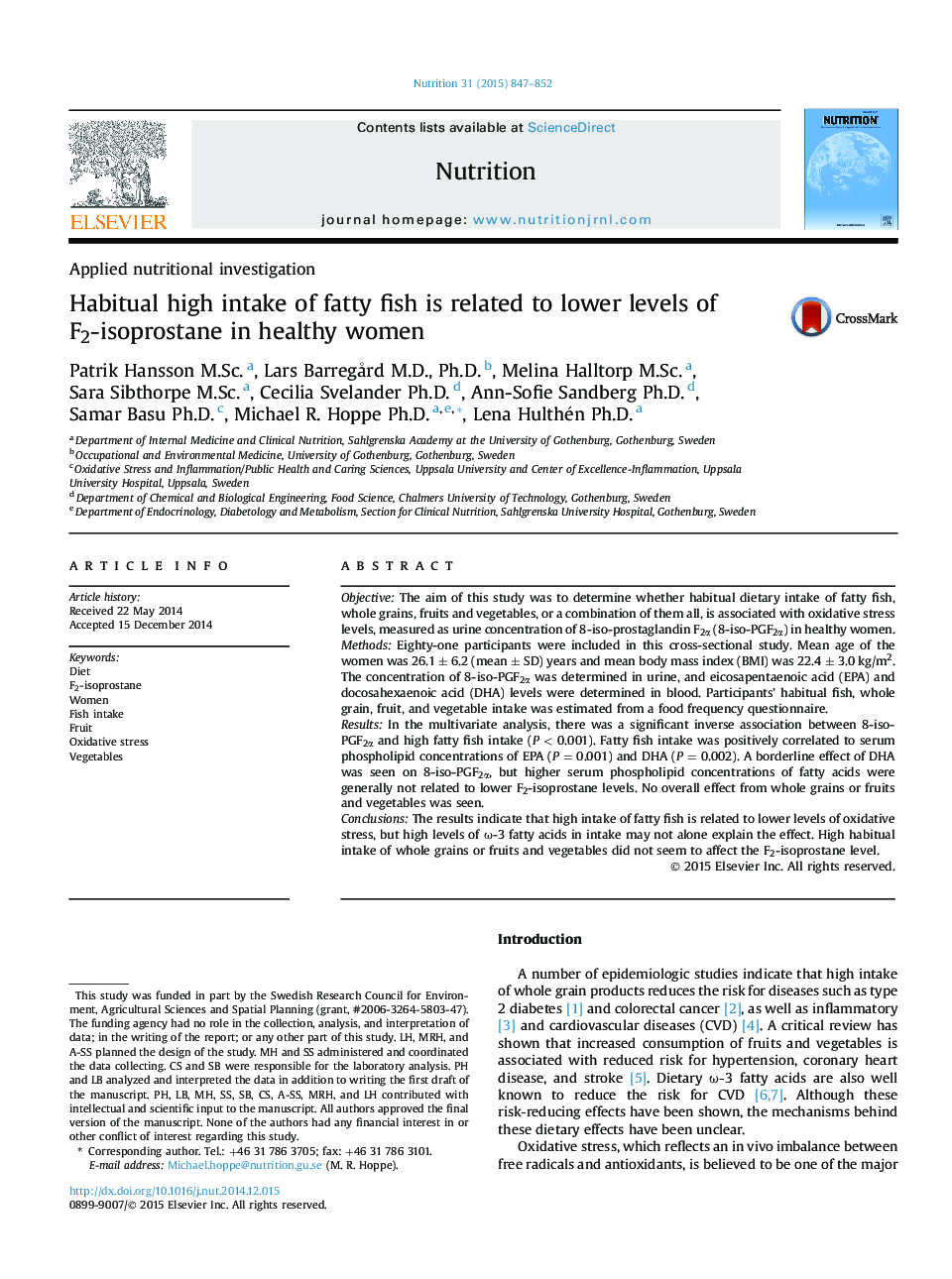| Article ID | Journal | Published Year | Pages | File Type |
|---|---|---|---|---|
| 6089034 | Nutrition | 2015 | 6 Pages |
â¢High habitual intake of fatty fish was related to lower levels of oxidative stress.â¢Ï-3 Fatty acids could be partly responsible for the antioxidative effect.â¢An antioxidative effect can be expected from a fatty fish intake of >275 g/wk.â¢High intake of whole grains or fruits and vegetables had no antioxidative effect.
ObjectiveThe aim of this study was to determine whether habitual dietary intake of fatty fish, whole grains, fruits and vegetables, or a combination of them all, is associated with oxidative stress levels, measured as urine concentration of 8-iso-prostaglandin F2α (8-iso-PGF2α) in healthy women.MethodsEighty-one participants were included in this cross-sectional study. Mean age of the women was 26.1 ± 6.2 (mean ± SD) years and mean body mass index (BMI) was 22.4 ± 3.0 kg/m2. The concentration of 8-iso-PGF2α was determined in urine, and eicosapentaenoic acid (EPA) and docosahexaenoic acid (DHA) levels were determined in blood. Participants' habitual fish, whole grain, fruit, and vegetable intake was estimated from a food frequency questionnaire.ResultsIn the multivariate analysis, there was a significant inverse association between 8-iso-PGF2α and high fatty fish intake (P < 0.001). Fatty fish intake was positively correlated to serum phospholipid concentrations of EPA (P = 0.001) and DHA (P = 0.002). A borderline effect of DHA was seen on 8-iso-PGF2α, but higher serum phospholipid concentrations of fatty acids were generally not related to lower F2-isoprostane levels. No overall effect from whole grains or fruits and vegetables was seen.ConclusionsThe results indicate that high intake of fatty fish is related to lower levels of oxidative stress, but high levels of Ï-3 fatty acids in intake may not alone explain the effect. High habitual intake of whole grains or fruits and vegetables did not seem to affect the F2-isoprostane level.
